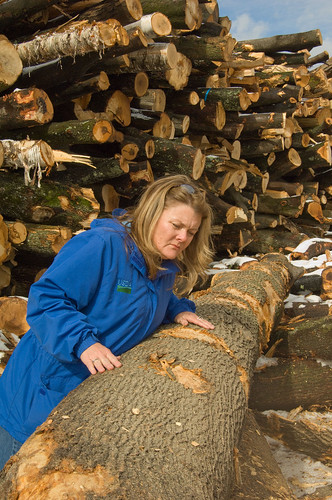
One of the things I consider a highlight of my career and that I will always remember is our successful response to the July 2010 detection of the Asian longhorned beetle (ALB) in Boston, Massachusetts. As I attended the May 12 ceremony commemorating the eradication of the ALB infestation in Boston and listened to the speakers share their thoughts about what it took to get us there, I had a deep sense of appreciation for the partnership among the state and federal cooperators who worked together to bring us to that day. It was swift action and continued diligence that protected Boston’s trees from further destruction.
APHIS and its cooperators were able to accomplish the goal of eradicating ALB in Boston in less than 4 years. Thanks also go to a community member who reported the infestation early. That early detection and report resulted in the loss of only 6 infested trees.
But as I celebrate our first victory over the invasive pest in Massachusetts, I am compelled to ask you to remain vigilant in inspecting your trees regularly for signs of the beetle and report any suspicious damage to your State Plant Health Director.
There were two infestations of the beetle in the Commonwealth – the one in Boston and one that we are still fighting in Worcester County, within the central part of the State. Having been one of the first two people to respond to the report of ALB in August 2008, when it was first made by a City of Worcester resident, I have seen first-hand the severe damage the beetle causes to the trees it attacks and how an ALB infestation deeply affects a community.
A quarantine remains in effect in central Massachusetts, which includes the City of Worcester, the towns of West Boylston, Boylston, Shrewsbury and portions of Holden and Auburn.
This is the time of year when we are heading toward emergence of the beetle from the trees it attacks. The sooner we know about an ALB infestation, the sooner we can do something about it, and the best line of defense is you. We still have work to do in Worcester County, as well as New York and Ohio. I know I plan to check the trees on my property and in my community, and I hope you will do the same.
On June 27, I will retire from the USDA’s Animal and Plant Health Inspection Service (APHIS) as the State Plant Health Director for Massachusetts, Connecticut and Rhode Island after 36 years of government service. At retirement, people often reflect on their careers and the progress they’ve made while working. I am glad to have seen the ALB eradicated from Boston before my retirement, but there is much still to be done as we work towards the goal of eradicating the invasive and damaging ALB from the rest of the United States. Early detection is paramount.



